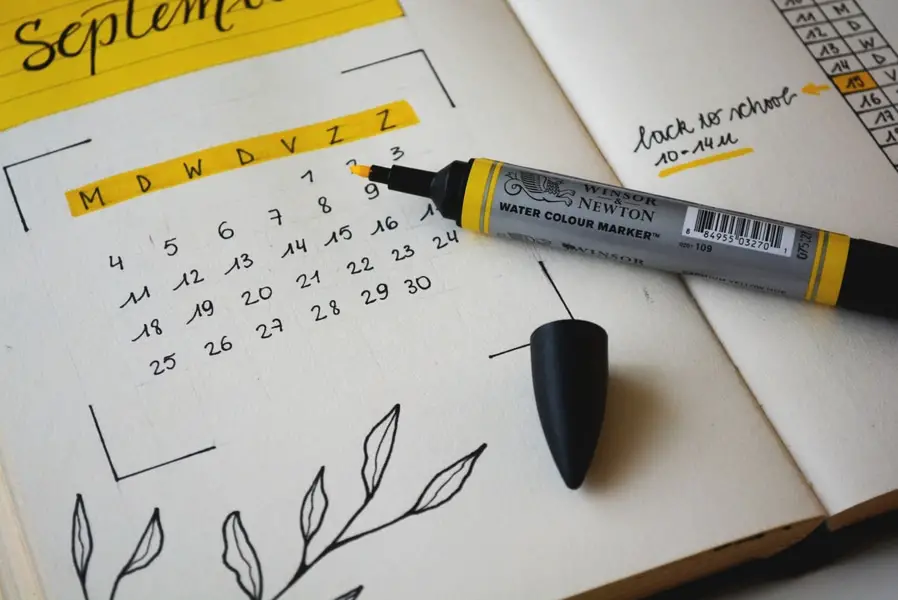Graduating from my undergrad at the height of the financial crisis in 2009, I didn’t know if grad school would ever be an option for me due to the mountain of student loans I had to pay back, and because of the outrageous prices of grad school in the U.S.
Fast-forward ten years later and I am finishing my first year of grad school in Canada at the well-ranked University of British Columbia in Vancouver. And somehow, I managed to get my tuition paid for completely by compiling small-ish (though not so small to me) scholarships.
I’m working on getting the second year for free too, as we speak! How did I do this?

I don’t have a secret or “quick and easy” tips—just some luck and a tough game plan that I used last spring to win scholarship money. My tuition was completely covered for my first year which otherwise would have cost me 7K+ as a permanent resident in Canada (still much cheaper than in the U.S.!).
Please keep in mind that this exact plan isn’t for everyone, as obviously eligibility varies for factors such as immigration status—I’m a permanent resident in Canada, so I would’ve been able to pay Canadian prices for tuition if I hadn’t won these scholarships. Most of my free tuition money came from scholarships I won through my teachers’ union memberships and because my grandfather was in the military.
However, I guarantee that most people have something about them they can lean into in order to ease that grad school tuition burden. I hope this helps someone get inspired. I had a hard time finding ANY information at this time last year when I was scrambling for money.
So, here are my 7 not-so-secret strategies and recommendations in a nutshell that worked for me last year, and that I am currently using to keep getting that “free” grad school money for next year:
- Respect your writing time and clear your schedule for the scholarship application process; and treat it with the due diligence of another job.
- Put a system in place for keeping track of your scholarship applications. Make a spreadsheet!
- Begin your research by looking at DEADLINES – e.g. “Scholarships with September deadlines”
- Exhaust every possible avenue of scholarship research – e.g. memberships of any kind that you or your long-lost family members may have or had in the past (including veterans’ organizations!)
- Apply to any and every scholarship that you are eligible for, no matter how small or seemingly bizarre (I won a rap scholarship… seriously). Just submit the application!!
- Apply for every work position possible through your graduate program—teaching assistantship, research assistantship, internship, all the ships. Whatever it is. Do it.
- Keep your day job and/or side gigs during your graduate program, if possible. It’s an incredible amount of work but it’s not forever.

#1 Clear your schedule for the scholarship application process and treat it with the due diligence of another job.
This is really important. If you’re not willing to spend hours and hours writing really good, well-researched essays and to get many rejections (or no responses at all), then you’re not ready for this madness!
I spent hours of every day for the better part of two months researching and writing pieces for scholarship applications last spring.
Winning scholarships, even the small ones, is competitive. You have to approach it with the mindset that you’re going to do more research and write a better essay than all of the other applicants.
I was probably rejected for 95% of the ones I applied for. But the few I got were enough to pay for a year of tuition! The more you apply for, the better shot you have.
Also, for more motivation, there’s a debt.com scholarship of $500 given every two months just for applying to many other scholarships! I applied once to that one and didn’t win. I’ll be trying again!
#2 Put a system in place for keeping track of your scholarship applications. Make a spreadsheet!
If you’re really planning on applying to as many scholarships as you should in order to win some money, it’s going to be important to get organized before everything gets really confusing and you start to lose track of what you’ve applied for.
I made a simple Excel spreadsheet that included columns for the names of the scholarships, the websites, the scholarship $ amounts, the due dates, when I submitted my applications, and when I could expect a response from the organizations or committees.
This spreadsheet also helped keep me on track and gave me motivation to check the scholarship applications off my list. And if you’re applying for the previously mentioned $500 debt.com scholarship, this will make it easier for you to apply—simply look at the list of scholarships you’ve applied for in your spreadsheet. You can make this as simple or as complex as you want:

I also saved individual Word documents for each scholarship I found, labeled them “DUE DATE_NAME OF SCHOLARSHIP” and created a folder for them. That way, I could look at my Excel spreadsheet and the corresponding Word doc for each scholarship on the list. I had copied and pasted the requirements from every scholarship website into its own Word doc, making it easy to access—I didn’t have to go back hunting for a scholarship application online or scour my bookmarks. I also did all of my essay-writing in these Word docs and would later copy and paste for the ones I had to submit online.
Taking the LITTLE BIT of extra time to do this organization is very helpful for later when you need to write a similar essay or submit similar information for other scholarships—you already have plenty of organized content to draw upon instead of having to reinvent the wheel.
#3 Begin your research by looking at DEADLINES – e.g. “Scholarships with September deadlines”

This maybe seems obvious but it’s a good idea to start your search parameters with the closest deadlines. So, if it’s May, I would type into Google “scholarships with May deadlines” or “scholarships for [whatever specific parameters] with May deadlines.”
I know Scholarships.com gives you scholarships listed by deadline.
I wasted a lot of time last year searching for and getting excited about scholarships that had already closed. Save yourself some time! If you have missed a deadline for a scholarship you’re eligible for, make a note of it for next year—perhaps in a new tab in your spreadsheet.
And then, of course, pursue those scholarships with closer deadlines first… even if they’re not the ones you’re most excited to apply for.
#4 Exhaust every possible avenue of scholarship research – e.g. memberships of any kind that you or your long-lost family members may have or had in the past
Again, I don’t think I’m blowing anyone away with new information here, but it is SO important to be aggressive in your search for scholarships and to advocate for yourself! Only you can best hunt for scholarships that you might be eligible for.
For myself, I was always (and still am) searching for scholarships with keywords like—scholarships for women, “mature” students, “untraditional” students, Americans in Canada, scholarships for permanent residents, for teachers, for [blah blah] union members… etc.
The three “small” (I put “small” in quotation marks because I don’t think any scholarship is too small to help) scholarships I won last year were from my teacher’s union, a contest from a national union organization, and a war veteran scholarship that I was eligible for through my grandfather’s service.
Check out veterans’ associations and unions if you have these affiliations. Ask your family and friends to check if their work offers scholarships. Check your local community board. My brother won a scholarship offered by a thrift shop near my parents’ house!

#5 Apply to any and every scholarship that you are eligible for, no matter how small or seemingly bizarre
I would suggest, based on my experience, to spend your time pinpointing and applying to a large number of smaller scholarships with smaller applicant pools. If you can get a large scholarship, that’s great! But you might have a better shot at the small ones, like I did. And they do add up.
Apply to niche and bizarre scholarships when you find them!
I would suggest, based on my experience, to spend your time pinpointing and applying to a large number of smaller scholarships with smaller applicant pools.
If you can get a large scholarship, that’s great! But you might have a better shot at the small ones, like I did. And they do add up.
Remember that $10K duct tape prom dress scholarship for high schoolers that’s been going on forever? It’s still a thing!
As mentioned before, I applied to a contest through a union organization that I thought I had no chance of winning. I submitted a RAP about UNIONS. I have never written a rap in my life. And I won $1000. It probably took me three hours total to write. $300+ an hour is not bad! And if I’d lost, I guess I learned how to do something new!
Many people leave scholarships on the table because they think they can’t win or that they’re wasting their time. I understand the feeling.
But it’s a numbers game. If you really put the time and effort into many scholarships over a long period of time—chances are you’re going to win something. But you have to really commit and you have to apply for EVERYTHING.

#6 Apply for every work position possible through your graduate program—teaching assistantship, research assistantship, internship, all the ships. Whatever it is. Do it.
I did internships and an assistantship ten years ago out of undergrad, but I was still excited and enthusiastic about the chance to take on yet another internship position advertised as part of my current program.
If you have the same chance, I recommend you take it. They’re a great way to learn something related to your field, build relationships with your colleagues, and make some money!
A side job that is a bit more mindless may be tempting with your grad school workload, but I think it’s worth taking on those extra challenges since this time in your life won’t last forever.
#7 Keep your day job and/or side gigs during your graduate program, if possible.
During my grad school program, I have coursework and an internship… but I have also kept teaching at a school part-time.
Not everyone has this chance, but it’s a good way to keep one foot in the job (“real”?) world and one foot in academia. I’ve also found it’s a great way to pay your rent! 🙂

Whatever you do, don’t give up! There is a path for finding grad school money for you, whether you have to wait ten years like I did (hopefully not!) or if you’re lucky and talented enough to stumble upon a ton of scholarship money right away. Just keep applying!!

